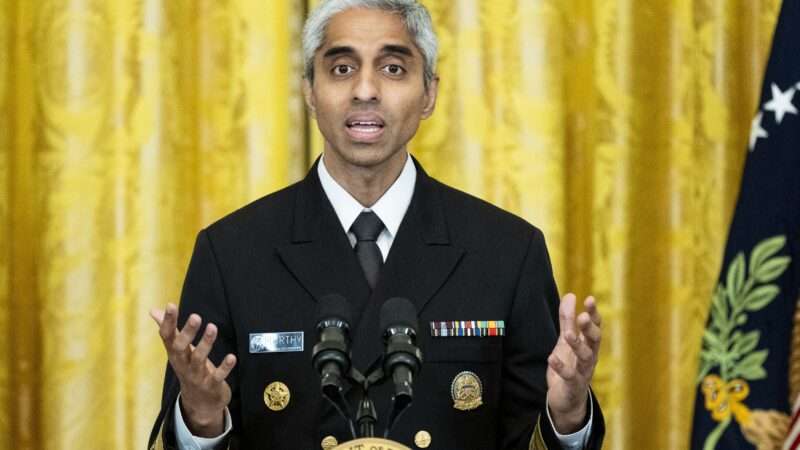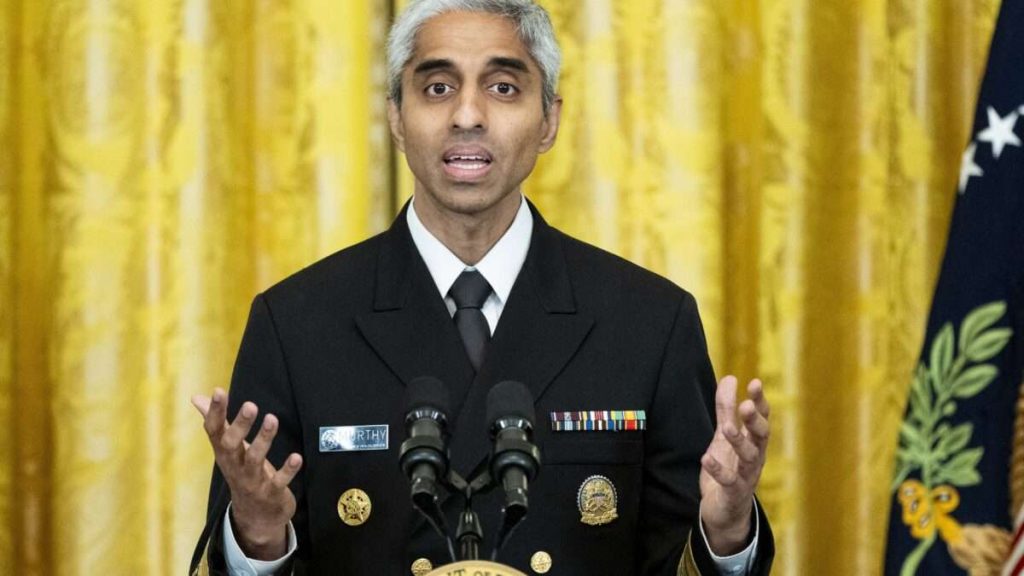
Our national health scold, Surgeon General Vivek Murthy, issued an advisory on his way out of office, asserting that drinking beer, wine, and liquor is “a leading preventable cause of cancer in the United States.” The report warns that for some cancers, “evidence shows that this risk may start to increase around one or fewer drinks per day.” It is worth noting that the current U.S. dietary guidelines suggest that alcohol consumption should be limited to two drinks per day for men and one per day for women.
Specifically, Murthy’s advisory asserts that drinking is associated with an “increased risk for at least seven different types of cancer, including breast (in women), colorectum, esophagus, liver, mouth (oral cavity), throat (pharynx), and voice box (larynx).”
Inexplicably, Murthy did not address the comprehensive review of evidence on alcohol and health issued two weeks earlier by the National Academy of Sciences, Engineering and Medicine (NAS).
Contrary to the surgeon general’s claims, the NAS report determined that “no conclusion could be drawn regarding an association between moderate alcohol consumption and oral cavity, pharyngeal, esophageal, or laryngeal cancers.” In addition, the NAS report determined that “no conclusion could be drawn regarding the association between moderate alcohol consumption compared with lifetime nonconsumers and risk of colorectal cancer.” Interestingly, a June 2024 study in Scientific Reports, not cited by either the NAS or Murthy, found that moderate drinking “was a protective factor for colorectal cancer.” The NAS did find with moderate certainty that moderate drinking was associated with a slight increase in the risk of female breast cancer.
But even Murthy’s advisory notes that only 17 percent of the 20,000 or so annual cancer deaths associated with drinking occurred among moderate drinkers. Assuming that Murthy’s figures are correct, then only about 3.2 percent of the annual 609,000 cancer deaths last year are attributable to drinking alcohol. Of those, moderate drinking contributed to 3,400 deaths last year, amounting to just 0.6 percent of all cancer deaths.
Looking at the bigger picture, NAS researchers concluded with moderate certainty that “compared with never consuming alcohol, moderate alcohol consumption is associated with lower all-cause mortality.” This is the classic U- or J-shaped curve graphical representation that shows the risks for overall mortality are lower for light to moderate drinkers than for nondrinkers and heavy drinkers. Moderate drinkers tend to have fewer heart attacks and strokes than nondrinkers and heavy drinkers. With respect to overall mortality, the cardiovascular benefits tend to outweigh the modest cancer risks.
NAS researchers fully acknowledge that “there is strong evidence for the adverse effects of heavy drinking on the risk of the leading causes of death, including heart disease, stroke, and cancer.” There is no need for epidemiologists to torture data to prove the deleterious effects of heavy drinking to all of us who overindulge. After all, English physician and pathologist Matthew Baillie in his The Morbid Anatomy of Some of the Most Important Parts of the Human Body first described the relation between hard drinking and cirrhosis of the liver in 1793. In 2023, nearly 43,000 Americans died of liver disease related to drinking alcohol.
Nevertheless, epidemiologists kept themselves busy. A search of Google Scholar using the terms “alcohol consumption” and “epidemiology” turns up 1,620,000 articles. Changing the search parameters to “moderate alcohol consumption” and “epidemiology” reduces the number of articles to a mere 22,600. The upshot is that advocates can slice and dice data to find just about any conclusion about the effects of alcohol consumption that they may want. Alcohol abuse researcher Mark Nason at the Prevention Research Institute recently observed, “The findings of a broad range of research on low-level drinking are equivocal and thus do not support a firm conclusion that it can be beneficial or that it increases health risks for most populations.”
Nonetheless, Murthy wants to slap cancer warning labels on beer, wine, and liquor, and “reassess the recommended limits for alcohol consumption.” Even more worryingly, he wants to “incorporate proven alcohol reduction strategies into population-level cancer prevention and initiatives and plans.” Citing the work of neo-prohibitionist researchers like Timothy Naimi, Murthy’s strategies would doubtlessly include “evidence-based policies that reduce the availability and affordability of alcohol (e.g., increasing alcohol taxes, reducing alcohol outlet density).” The surgeon general is evidently eager to deploy a questionable cancer scare in his campaign to impose stealth prohibition. For your own good, of course.
The post Surgeon General Gins Up a Questionable Drinking Causes Cancer Scare appeared first on Reason.com.






